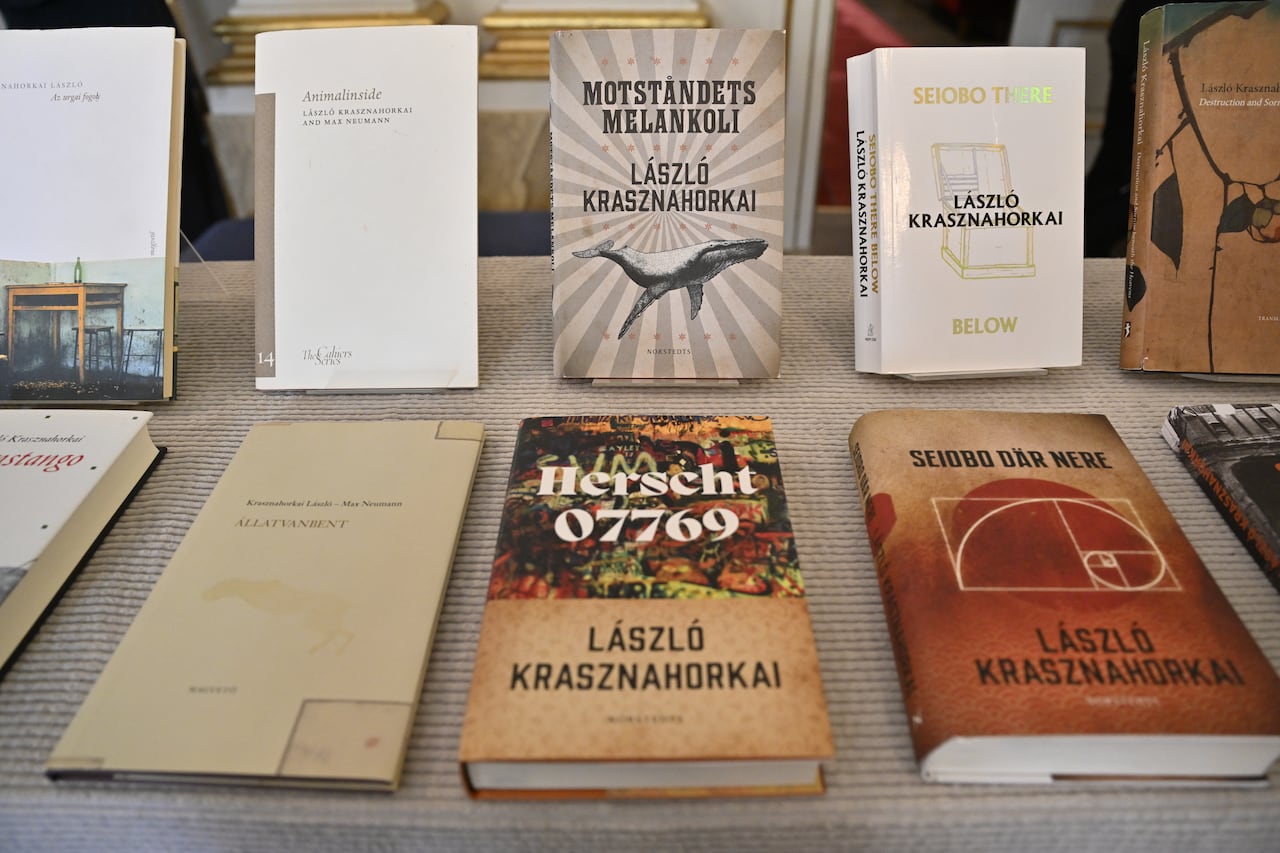Hungarian writer Laszlo Krasznahorkai awarded the Nobel Prize in Literature

Hungarian writer Laszlo Krasznahorkai won the 2025 Nobel Prize in Literature, the award-giving body said on Thursday.
The prize is awarded by the Swedish Academy and is worth 11 million crowns ($1.6 million Cdn).
Mats Malm, permanent secretary at the Swedish Academy, praised Krasznahorkai's "visionary oeuvre that, in the midst of apocalyptic terror, reaffirms the power of art."
The honour for Krasznahorkai, 71, comes a decade after he won the prestigious Man Booker International Prize. He is perhaps best known for the 1989 novel, The Melancholy of Resistance, which won the German Bestenliste Prize four years later.
The American critic Susan Sontag crowned Krasznahorkai contemporary literature's "master of the apocalypse" after reading that book, the academy said Friday.
Influenced by KafkaKrasznahorkai was born in the small town of Gyula in southeast Hungary, near the Romanian border.
The settings of his novels have ranged from central Europe's remote villages and towns, from Hungary to Germany, to the Far East, as his travels to China and Japan were said to have left deep-seated impressions.

His breakthrough 1985 novel, Satantango, is set in a remote rural area and became a literary sensation in Hungary.
The work resonated as collective farms had been set up when farming land was confiscated at the start of communist rule, but many of those farms had become symbols of mismanagement and poverty by the time it ended in 1989.
Krasznahorkai has repeatedly referenced The Castle by the early 20th-century writer Franz Kafka as a key influence.
"When I am not reading Kafka, I am thinking about Kafka. When I am not thinking about Kafka, I miss thinking about him," he told the White Review in 2013.
Frequent collaborator elatedKrasznahorkai has enjoyed a close creative partnership with Hungarian filmmaker Bela Tarr. Several of his works have been adapted into films by Tarr, including Satantango, which runs to more than seven hours.
"When I read it, I knew it immediately that I must make a film based on it," Tarr told Reuters by phone. "I am very happy … it's hard to say anything right now."
Tarr also adapted the writer's The Werckmeister Harmonies.
Past notable laureates in literature have included George Bernard Shaw, Ernest Hemingway, Jean-Paul Sartre, Gabriel Garcia Marquez and, in 2013, Canadian Alice Munro. Last year, the honour was awarded to South Korean Han Kang.
Krasznahorkai is the second Hungarian to win the prize, after Imre Kertesz in 2002.
The Nobel Prizes are presented to the laureates in a ceremony on Dec. 10, the anniversary of Swedish inventor Alfred Nobel's death.
The Nobel Peace Prize will be announced on Friday, with the Nobel in economics recipient to be revealed on Monday.
The committee that decides on the laureates for the peace prize said there were 338 candidates put forth for nomination, an increase from last year's total of 286 nominees. The list of nominees is only revealed 50 years after the prize is awarded.
The nomination period for the peace prize closed on Jan. 31.
Last year, the peace prize was awarded to the Japanese grass roots group Nihon Hidankyo, dedicated to the cause of a nuclear-free world. The group formed in 1956, a decade after atomic bombs were dropped on Hiroshima and Nagasaki, killing hundreds of thousands of people and exposing civilians to radiation.
cbc.ca




